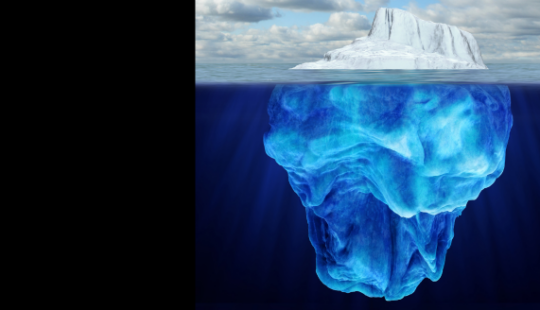As part of SAP’s vision for a cleaner ocean, recently announced at the World Economic Forum in Davos, the company is building a digital platform to support experts and advocates
SAP is partnering with eXXpedition and the initiative co-founder, ocean advocate Emily Penn, to support its commitment to a cleaner ocean by 2030. Emily and her team have invited 300 women from all walks of life to sail 38,000 nautical miles in 30 stages. The women have one mission: to explore the science of — and solutions to — ocean plastic and become ambassadors to combat ocean pollution.
The need for ocean advocacy is greater than ever before. Research suggests there could be 1 million times more microplastics floating in our oceans than previously thought. But in truth, no one has a precise metric on the volume or impact of plastic polluting the oceans. Emily and team aim to raise greater awareness based on scientific data with the help of SAP.
“I’m incredibly excited to join forces with SAP to improve the health of our ocean by bringing together the energy of our eXXpedition community and our scientific research with SAP’s innovative technologies,” said Emily. “Industry has a huge role to play in addressing the challenges our ocean faces. The most pressing problem is how to turn off the tap to plastic pollution, and the next years will be spent doing just that — trying to prevent plastic getting into the ocean in the first place. For us to do that, we need everybody on board and, in particular, we need businesses to come to the table and take a lead, as SAP is doing.”
Plague of Plastic
To tackle the problem, businesses need to rapidly shift to single-use alternatives, move toward circular business models, invest in waste infrastructure, and ensure a better consumer experience.
The software giant will share data and insights from the eXXpedition voyages to provide customers, non-governmental organizations (NGOs), governments, and partners with the tools, insights, and solutions needed to eliminate waste, maximise resource productivity, and help raise awareness of the need to create a cleaner ocean for all. One step in that direction is the Plastics Cloud, a pilot program from SAP that was launched last year to help reduce the waste of single-use plastics.
Building on that program, SAP will support Emily and eXXpedition by creating a custom-built digital platform to educate people on actions they can take to reduce plastic waste in their local communities. Enabled by Ariba Network, the Plastics Cloud allows brands to connect with new recycled plastics and alternative supply sources. About 40 percent of plastic produced globally is used in product packaging, but less than one-fifth of this plastic is recycled, creating serious environmental and human health problems.
Around $10 billion worth of packaging flows through Ariba Network annually. “Even a small portion of global spend on packaging redirected to pre-certified suppliers of recycled plastics and alternatives can have a tremendous impact on the environment,” says Stephen Jamieson, head of Sustainable Business Innovation for SAP in Europe, the Middle East, and Africa.
Paradise Lost
In one of her speeches, Emily recounts how she was hitching a ride from England to Australia on a sailing boat a few years ago when she and the crew were alarmed by thuds on the hull. They found themselves surrounded by countless pieces of plastic a thousand miles from land. “That didn’t make sense,” she says. “The closest people to us were in the space station in orbit above us, yet here was evidence of human life and waste in the most remote part of the planet.”
That journey sparked her mission to connect scientists and communicators with the ocean. Emily has experienced the challenges firsthand on visits to the Pacific, where islanders are struggling to catch fish because commercial vessels empty their waters and are also struggling to grow food because rising sea levels make land salty. “These people are now reliant on packaged food and drink, which comes all wrapped in plastic,” she says.
Besides the sight of plastic in the ocean, the worst thing for Emily was the knowledge that burning plastic releases chemicals that lead to cancer and disrupt human hormones.
Why Women
Women are still only 13 percent of the science, technology, engineering, and math (STEM) workforce, but that is not the only reason eXXpedition is taking an all-female crew.
Historically, studies on the effects of chemicals on human health have focused on men simply because they make up the majority of the workforce in areas where occupational hazards have been studied. As a result, research on female-specific diseases has had a low profile. This imbalance is becoming increasingly important as the incidences of non-communicable diseases, such as cancers, are increasing.
Emily had her blood tested for 35 chemicals and discovered she already has 29 in her body. This is alarming because phthalates, which are present in personal care products, cleaning products, fragrances and cosmetics, may be linked to birth defects, and plastics and epoxy resins, which are found in food containers, have been found to affect hormone production and fertility in females.
Takes Problem Solvers
One of the 300 women joining Emily on a leg of the journey is Natasha Pergl, global sustainability lead for Innovation Services and Solutions at SAP. Natasha has never sailed before, but she will join the Galapagos-to-Easter Island Pacific leg of the all-women ocean voyage.
For Natasha, this is an opportunity of a lifetime. As a child, she was always curious. Historical expeditions fascinated her, and she was intrigued to find out how things work. As a born problem solver, she is confident the team can solve challenges like plastics, but only with the right knowledge and by working together. She understands that researchers and scientists like Emily need data in order to share insights with the business world and help impact changes further upstream.
Creating circular manufacturing and supply chain processes is one way to help solve the problem. Natasha plans to record her experiences and take part in the science on board. Mostly, she is looking forward to learning as much as she can from her fellow crew members, who include a fashion activist, a legal adviser to refugees, businesswomen, and artists.
After the eXXpedition trip, Natasha will share her insights with business leaders and NGOs and help shape the solutions and services being developed at SAP.
This article first appeared on the Global SustainabilityNews Centre.


